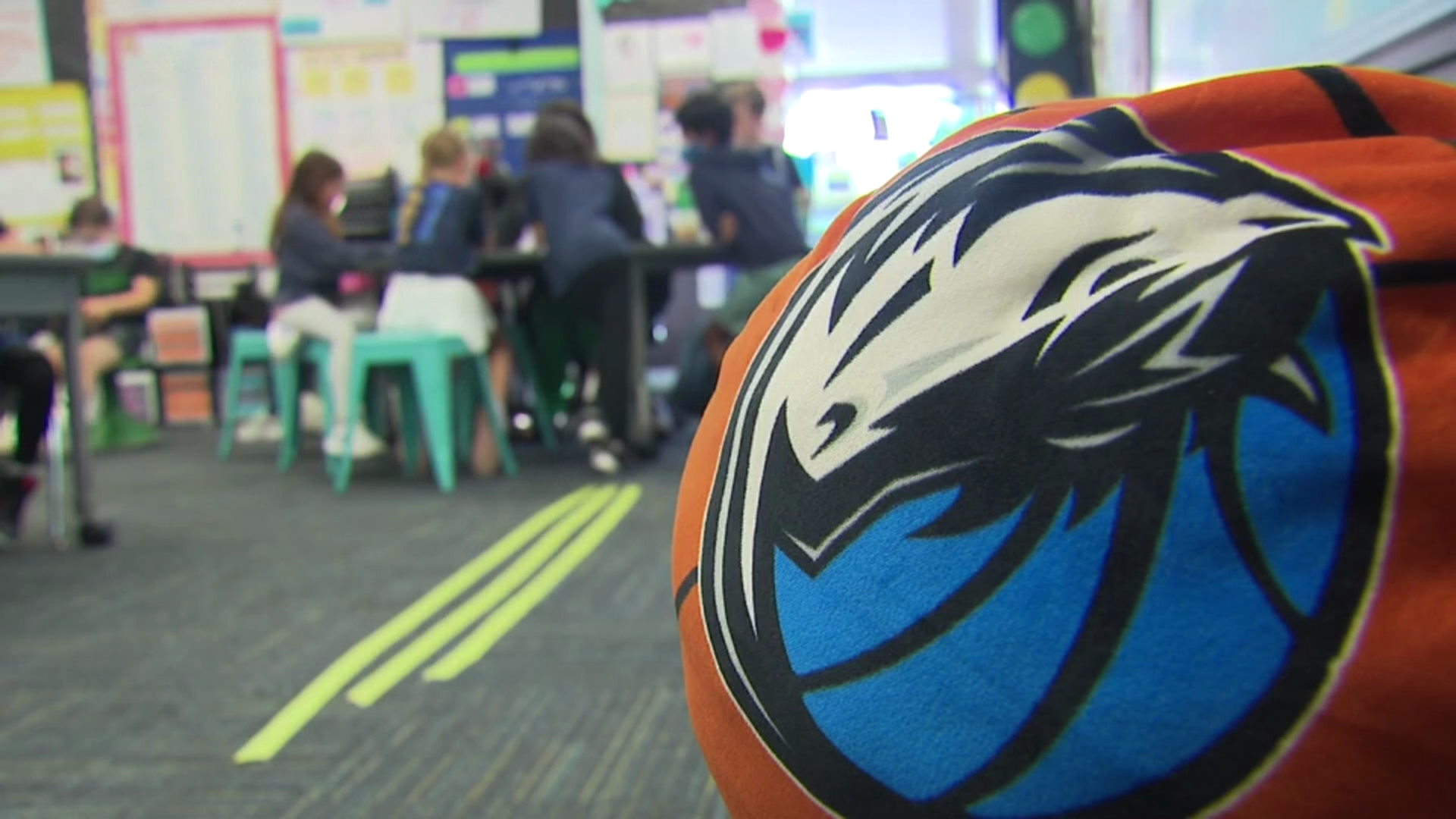An NBC 5 investigation found thousands of flights continue to violate airport guidelines designed to reduce noise at Dallas Love Field.
City of Dallas records obtained by NBC 5 Investigates also show a 171 percent increase in noise complaints from Dallas residents from 2014 to 2015 in the year after the Wright Amendment was lifted, allowing more nonstop flights from Love Field.
Families in some Dallas neighborhoods said they’ve had enough with planes waking them up late at night and affecting their quality of life.
“It is terrible after 9 p.m. and we get flights all through the night,” said Judd Bradbury, who lives about two miles from the runways.
Each night the Bradbury's put the kids to bed and worry it won’t be too long before another plane wakes them up.
“It’s like having a neighbor that moves in next door and plays the radio all night long,” said Bradbury.
Local
The latest news from around North Texas.
To find out how many flights violate the airport's Voluntary Noise Control Program, NBC 5 Investigates requested airport records, including a database of all flights that did not comply with the airport's requests.
The airport asks all jet aircraft to use the "nighttime preferential runway." That preferred runway is the one on the west side of the airport along Denton Drive.
But, in 2015, records show 3,401 flights used the wrong runway after 9 p.m. -- the east runway along Lemmon Avenue. That’s an average of about nine flights each night where big jets failed to comply with the program.
There are a couple of reasons the airport and the airlines agreed to use the west side, Denton Drive runway at night.
- First, it’s longer so planes can use less power taking off, making the plane’s engines quieter.
- Second, pilots taking off on the west side of the airport can fly a special route known as the "Trinity Departure." It’s designed to keep planes away from the largest number of homes. Pilots flying that route make a right hand turn around Inwood Road and then head out toward the Trinity River.
Assistant Airport Director Terry Mitchell said the airport asks air traffic controllers and pilots to please only use the west runway at night because they are less likely to be over houses.
But the airport has no power to penalize controllers or pilots that don’t. Pilots can request any runway they want and ultimately air traffic controllers make the decision about which runway to assign.
"'Please’ is something we say all the time," said Mitchell.
More than 3,400 flights did not comply with the airport's wishes last year. But despite that fact, the airport considers the current situation a success.
"We've kind of set a goal of 80 percent compliance as being successful. It's not great but it's successful,” said Mitchell.
When asked why 80 percent is a goal Mitchell explained that it seemed like a reasonable number because he said they’ll never get 100 percent.
NBC 5 Investigates asked Bradbury what 80 percent compliance sounds like in his neighborhood.
“So 80 percent compliance sounds like, 'Hey, you don't mind if we run five jets by your bedroom each night?'” said Bradbury.
Neighbors argue the airport's 80 percent goal is an arbitrary number that makes no sense. Records show in five months of last year Dallas Love Field didn't even reach its own 80 percent target.
‘We would like to see the agreement complied with 100 percent,” said Bradbury.
On paper, the airport blames airlines for flights that don't use the preferred runway. In fact, they send the airlines notices each month telling them how many of their flights failed to comply.
The airline with the worst record of non-compliant flights is the airport's biggest user, Southwest Airlines.
More than 1,900 Southwest flights violated the preferred runway agreement last year. That's about five Southwest planes each night.
But officials who oversee the noise program, told NBC 5 Investigates they don't really believe Southwest is at fault in most cases.
"In practicality, a lot of things are beyond their ability to control," said Mitchell.
"Our pilots have been instructed to always request the preferred runways," said Southwest Airlines managing director of governmental affairs, Jason Van Eaton.
Southwest said the problem is air traffic controllers often overrule their pilot's requests.
"Where we land and how we approach the airport are not set by Southwest Airlines. Those are set by air traffic control, that is operated by the FAA," said Van Eaton.
“I think we're all doing our dead level best to operate as friendly as possible,” said Federal Aviation Administration spokesman, Lynn Lunsford
The FAA claims controllers only send planes to the non-preferred runway in situations where they have to for safety reasons or for efficiency.
When asked if the FAA is doing its best to be a good neighbor, Lunsford replied, “We are always looking to do better.”
Neighbors said it needs to get a lot better.
“They're addressing it, the number of complaints should be going down,” said Bradbury.
But instead, NBC 5 Investigates found complaints from citizens are up 171 percent from 2014 to 2015 in 11 comparable months where the city kept data.
NBC 5 Investigates mapped the locations of people complaining and found most live on the south and east side of the airport and many live miles away from the runways.
Much of the recent increase in complaints comes from a few neighbors who complain frequently. Patrick Cook is one of them. He lives in a neighborhood affected by those nighttime flights off the east runway.
Cook spoke at a Love Field noise meeting in January where he described his two children, ages 2 and 4, go to bed at 7 p.m. and wake up crying by 10 p.m. due to the noise.
Records of complaints made to the city show the frustration.
One neighbor complained saying, "I have lived in the neighborhood for 13 years and it has never been nearly as bad."
Another said, "Since the Wright Amendment lifted we hear constant noise ... It is literally causing constant stress within our home."
Others describe the planes as "terrorizing (the) neighborhood".
One angry resident told city officials the planes are, "one after another, low and loud all (expletive) evening."
But airport officials insist things aren't so bad.
“Our goal is to garner 80-percent compliance. And if we're hitting 80 percent we're in pretty good shape we think," said Mitchell.
But neighbors believe it's time for their voices to be heard above the noise and time for the FAA and the airport to do more.
We file all these complaints and then what? What do they do?” asked Bradbury.
NBC 5 Investigates reached out to City Councilman Adam Medrano, who represents the area around Love Field, to ask if 80 percent compliance is good enough to him.
In a written response Medrano said that given the number of variables involved, 100 percent compliance would be unrealistic.
But, Medrano said under terms of the original noise agreement, 80 percent compliance was not necessarily the end goal.
"It was also agreed that once the goal of 80 percent was achieved on a protracted and consistent basis, the committee would then discuss the practicality of adjusting the goal to a higher level", Medrano said.
Dallas Mayor Mike Rawlings said the city would continue to work on the problem.
"I'm confident we'll continue to make progress on this important issue," Rawlings said.



